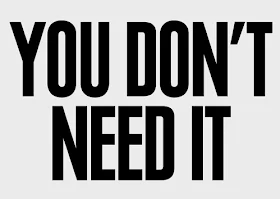 |
| Cast iron Corn bread. Can you even buy cornbread in a store? I have never seen it. |
It seems like everything in the grocery store comes in plastic. Even the stuff that doesn't, often gets put in plastic before it leaves the store. Non-plastic packaging may be less harmful, but it still uses precious resources. What is an aspiring zero-waster to do?
How about home cooking?
Making as much of our own food as we can helps us meet several objectives:
a) To avoid highly processed/low nutrition foods that may contain GMOs, nasty chemicals, hormones, antibiotics, high levels of sugar/salt/fat, and who knows what else? E-coli? Salmonella? Listeria?
b) To be able to control the ingredients in the food we eat, and
c) To create affordable dishes that are fresh, yummy, and that provide health promoting effects (food as medicine).
However, given the tidal wave of packaging (especially plastic) washing over the planet, there is a consideration that might be the most important of all.
A big benefit of cooking at home is cutting down on packaging that contributes to both the garbage stream as well as recycling materials. Processed foods usually mean over-packaged foods. About 1/3 of the plastic produced in the world is used in the packaging industry.
I used to think that humanity was going to pave over the entire world, but it looks like the globe will be shrink wrapped before that happens.
 |
| Granola bars before being cut. |
Every time we make something at home rather than buy it pre-made from the store or take-out, we are avoiding packaging waste. Not to mention that cooking can be an immensely fun and rewarding activity.
Some packaging can be recycled, but in the major scheme of things, "Refuse" is better than "Recycle". Recycling still requires large energy inputs, from the trucks that pick up the stuff, shipping to a plant, recovery, then returning the materials into the system.
A lot of times more basic foods come in friendlier packaging. Flour, for instance, comes in paper, and the same with whole oats.
 |
| Two different kinds of veggie pizza. |
One serving of baked beans in a reusable canning jar means one less tin can that needs to be recycled. And don't forget about the paper label (that used to be a living tree).
Making a salad at home is easy when you use a pre-packaged salad kit. These are the ones that say "triple washed" and yet can still make you sick. A lot of the produce inside these kits comes from areas experiencing water stress, and all that washing wastes a lot of water.
The salad kits also contain several plastic bags within the bag. Much convenience usually means much waste. And they can make you sick.
Make a salad at home with your own ingredients (washed the way you like) is also easy. The Big Food Industry has made us very lazy in the kitchen, and the unintended consequences always end up biting us in the behind (and other parts of the digestive system).
 |
| Tomato-based pasta sauce with tofu about to go in the freezer. |
Cooking at home has multiple benefits for the individual, society and the environment. One of my favourites is that I am actively refusing the excessive packaging and waste involved with pre-packaged and processed foods.
Food, and everything associated with it, should promote personal and planetary health, not illness and depletion of the gifts of Mother Nature.
Cooking should be a sacred ritual unsullied by the sins of the corporate industrial food industry and its rallying cry of "profits before the people's and planetary health!"








